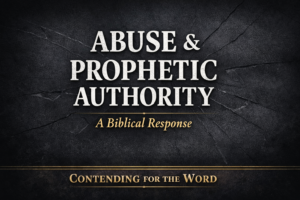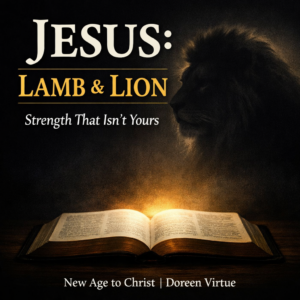⏱️ Estimated Reading Time: 10 min read
In the Beginning, God
The first verse of the entire Bible establishes the foundation for the rest of Scripture: “In the beginning, God created the heavens and the earth.” Genesis 1:1 declares a transcendent yet personal God who created all things. He is greater than time for he was in the beginning, greater than matter which he created from nothing, and greater than man whom he would form out of dust (2:7). He is greater than heaven and earth and everything in between. Therefore, all mankind must worship the Creator who fashioned the universe from nothing and deserves our everlasting praise. We have been created by him and for him to exalt him daily in every aspect of life (Col 1:15-16). We honor him with our gifts as we create masterpieces of art, work hard for his glory, or train our children in godly maturity (3:17). The Designer of the universe has tailor-made us to glorify him (Eph 2:10). Thus, we “ascribe to the LORD the glory due his name” (Ps 29:2) as we witness his marvelous attributes displayed in creation (Rom 1:20).
Eternal and Self-Sufficient
“In the beginning, God” means that God is eternal. Before anything ever was, God was. He was the main actor in all of creation: “God said. . . . God made. . . . God created. . . . God declared.” Yet Genesis does not explain his origin. Instead, it simply assumes his eternal existence. So as every child eventually asks, “If God made everything, then who made God?” And the truth is staggering, “No one made God!”
“But when was he born? When did he start?”
Scripture’s answer is, “Never! He never had a beginning.” As Moses sings, “Before the mountains were brought forth, or ever you had formed the earth and the world, from everlasting to everlasting you are God” (Ps 90:2). “‘I am the Alpha and the Omega,” declares the Lord GOD himself, “who is and who was and who is to come, the Almighty’” (Rev 1:8). God’s eternality humbles us with our smallness. If a string were stretched cross-country from ocean to ocean as a depiction of eternity, our lifespan would be only one tiny notch along that string. We were all born as helpless babes, inhabiting frail physical bodies that grow weary and require sleep.
The eternal God, however, is self-existent and self-sufficient—the uncaused Cause in need of no one. He stands independent of his creation, for all creation depends on him. He did not create man because he was either lonely or bored. He needed neither conversation partners nor worshippers to stroke his ego. The eternal God was under no constraint, obligation, or necessity to create. His sovereign choice to shape the universe was determined by his own good pleasure and solely directed for the sake of his name. For he “works all things according to the counsel of his will” (Eph 1:11). God did not create because he needed anything, for he is sufficient in and of himself.
The God without origin also has no maker to whom he is accountable. Every act comes by his sovereign precision. For who else was with him at creation? Who else was present in the beginning? He could have remained hidden behind the folds of the universe, yet he desired to be known. Therefore, the previously unknowable God revealed himself to man through the written revelation of Scripture: “In the beginning, God.” He made himself known by imprinting every aspect of creation with his stamp of glory: “Made in heaven.” As Paul makes clear, “For what can be known about God is plain to them, because God has shown it to them” (Rom 1:19). Thus, his self-revelation presents us with a decision: to believe that God exists or to suppress that truth and live the way we want (v. 18). Will we worship the Creator or his creation (v. 25)?
Immutable and Wise
Collectible items never remain in mint condition, that new car smell eventually fades, and even cherished loved ones grow old with age. Yet our Creator remains the same “yesterday and today and forever” (Heb 13:8). The eternal God never changes, nor do his attributes ever diminish. His beauty and grace are everlasting. “For the steadfast love of the LORD never ceases; his mercies never come to an end” (Lam 3:22). Thus, God’s unchangeable nature brings unending comfort for his people.
We can trust the Creator with the entirety of our lives because his eternality undergirds his perfect wisdom. God has never had to learn because he already knows every truth’s infinite depth and has never forgotten a single thought. He was in the beginning before there was time. God created time so that finite man could experience one measurable moment after another. However, God does not need time, for he experiences every moment simultaneously and eternally. As the Creator of time, God is, therefore, outside of time, knowing all things past, present, and future with vivid clarity. He knows our past victories and past struggles and the path we have taken to find him. He knows our present circumstances and our heart’s desires. Yet he also knows our future. “For I am God,” he declares, “and there is no other; I am God, and there is none like me, declaring the end from the beginning and from ancient times things not yet done, saying, ‘My counsel shall stand, and I will accomplish all my purpose’” (Isa 46:9-10). Our God is like the author of a novel who has written in advance the intimate details of every human life. He knows every one of our interactions and relationships, our birthday, and our death day. He knows every sin and every forgiveness and the moment we trusted in Jesus as our Lord and Savior. He knows our present struggles and also the way of escape (1 Cor 10:13). He knows our present joys, which fill us with the promise of eternal joy in heaven. All this he knew from before the world’s foundation: “In the beginning, God!” (Eph 1:4).
Gracious and Good
God is not only eternal and self-sufficient but also infinitely good and gracious. “Praise the LORD! Oh give thanks to the LORD, for he is good, for his steadfast love endures forever!” (Ps 106:1). All of God’s creation gives him praise and reflects his beauty (19:1). His intricate handiwork proclaims his order and ability. The omni-creative God painted all the textures and colors of the universe with his artist’s palette, then declared everything he created to be good. Six times he looked at what he had made and called it “good” (Gen 1:4, 10, 12, 18, 21, 25). With his seventh and final declaration, he called it “very good” (v. 31). Everything from the delicate human body to the massive arctic glaciers reflects the dignity of our Creator. Only a good and gracious God could bring forth beauty in such a manner. This God takes joy in us, for he created us to marvel at his wonders. By his grace, he channeled his almighty power to speak the universe into existence.
Omnipotent and Sovereign
Our Creator is also omnipotent, for only an all-powerful being could fashion the universe out of nothing: “In the beginning, God created…” This word “created” (bara) is only and always used of God, who created everything out of nothing (e.g., Ps 148:5). “By faith we understand that the universe was created by the word of God so that what is seen was not made out of things that are visible” (Heb 11:3). Sculptors chisel statues out of rock, and potters mold clay into useful vessels, but every artist has a medium. No human prophet-poet could ever shape creation by the power of his word. Yet “by the word of the LORD the heavens were made, and by the breath of his mouth all their host” (Ps 33:6). Over and over in Genesis 1, “And God said. . . . And God said. . . . And God said. . . . And it was so.” He spoke to bring the light into existence, separate the waters, and fling the stars into space. He spoke life into every creature by the sheer power of his Word. Thus, our Creator is worthy of all glory, honor, and praise (Rev 4:11).
Genesis 1 reveals a God who is neither equal nor subservient to nature, but rather sovereign and supreme over nature, matter, and time (Ps 135:6-7). Our Creator alone, and not his creation, deserves true worship. Our King rules in dominion over all and answers to no one, for not one maverick molecule anywhere in the universe, can frustrate his designs. Whatever he purposes will certainly come to pass.
Who God Is Changes Who You Are
What comes into our minds when we think about God is grounded in the creation account, for “in the beginning, God” destroys our delusions of self-sufficiency. Our thoughts about God then call us to take action. We first entrust ourselves to this eternal God who existed before time and who determines the end from the beginning (Isa 46:9-10). We trust that we are dependent on him and not the other way around. We trust our good and gracious God to act for us and not against us (Rom 8:28). We trust that the almighty God, even amid our darkest trials, will not allow a single aspect of our lives to slip from his control. We were not produced from random bits of matter, which somehow exploded into living beings. We were lovingly fashioned by our Creator who knows us intimately and has earned our trust.
Second, we enjoy our Creator by walking about and reflecting on the goodness of his gracious gifts. We thank him for colors and texture, for taste buds and aroma. He could have colored the world with different shades of gray and provided us food without flavor. He could have made the human reproductive act as boring as that of clams. Yet thankfully, the Lord created a world imbued with pleasure. His world is both functional and delightful. He took joy in creating the children of man and filling our world with goodness. Therefore, let us take joy in him, and may it lead us into worship: “Let them praise the name of the LORD, for his name alone is exalted; his majesty is above earth and heaven” (Ps 148:13). Let us also live awestruck in wonder at God’s beauty displayed in creation. We exist in a galaxy 100,000 light-years long filled with hundreds of billions of stars, yet God knows each one by name (147:4). The DNA inside every human cell contains enough data to fill up countless libraries, yet our Creator fashioned trillions of cells while each of us developed in our mother’s womb (139:13-15). “Let them praise the name of the LORD! For he commanded and they were created” (148:5). We trust in the Lord and delight in him.
Then finally, we extol our Creator God to others. If he is truly worthy of worship, the source of all joy, and as good and gracious as Scripture declares, then how can we stay silent? If he is all-powerful to judge and all-powerful to save, how can we keep from proclaiming this good news? If he truly is the eternal God who, in the beginning, created the heavens and the earth and, in the end, will establish the new heavens and the new earth, then how can we keep this to ourselves? The Lord’s creation must trumpet his glory for the rest of eternity: “O LORD, our Lord, how majestic is your name in all the earth!” (8:9).




